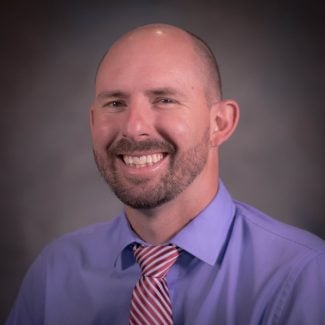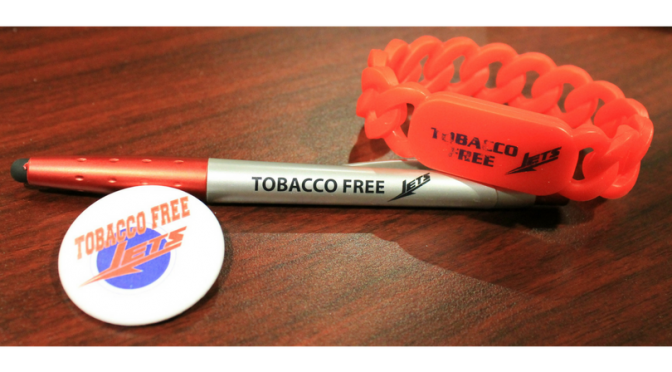After several months of votes, meetings and other preparation, Newman University has officially become a tobacco free campus as of July 1, 2017.
The idea for the change was conceived in 2013 when a survey asked students whether they would like a tobacco free campus. According to the survey, the answer was an overwhelming yes.

Dean of Students Levi Esses said the Kansas Health Foundation gave Newman a $25,000 grant to enact a healthier campus and achieve the tobacco free initiative.
After receiving the grant in 2015, Esses helped kickstart the Tobacco Free Campus Initiative. A lunch-and-learn event was held on November 7, 2016 to inform students, faculty and staff about the “Tobacco Free Jets” group, and allow the opportunity for questions to be answered. The goal of the group is to “ensure a safe and healthy environment for everyone during their time at Newman University.”
One of the most important pieces of information covered at the lunch-and-learn, Esses said, was to recognize the difference between a smoke free campus and a tobacco free campus. A tobacco free campus means cigarettes, cigarillos, cigars, roll your own tobacco, e-cigarettes, pipes and smokeless tobacco including snus and other spitless products, will be prohibited on all property owned and leased by Newman University.
“This year, we had a lot of momentum and a lot of people on board,” Esses said. “Now we have an approved policy for the cabinet, and we are working on completing the marketing piece of it, in terms of signage, how we get the word out and spread the message across campus.”
In addition to the lunch-and-learn event, Tobacco Free Jets sponsored a “Jet Friday” in April 2017 where tobacco free pens, shirts and tobacco information about use were available for free to the students and faculty. Esses said there were several students who came by and expressed that they appreciate the efforts of making the Newman campus tobacco free.
“I hope that everyone can understand that the initiative is not ‘anti-user’ but rather focused on promoting health on and off campus,” Esses said. “Smoking and chewing have some permanent damage, just like a lot of things that we probably put into our bodies, and we’re just trying to jump on board with the other two institutions [Wichita State University and Friends University]. As time has gone on, we know more about tobacco and its effects, and as more restaurants and businesses become tobacco free, we want to prepare our students for that transition.”
Esses said resources will be available to students, faculty and staff which include pamphlets with information on how to quit, handouts in Human Resources as well as in the Student Life Office. Esses is also working with guidance counselor Stacy Rodriguez to help some students who want to quit or who are struggling with wanting to quit, he said.
Because of the tobacco free policy, Esses suspects students will be coming in and out of buildings a little freer and will not have to dodge smoke in that aspect, but also understands that some people may be frustrated about the policy. Esses said he hopes people will recognize the policy that is in place and help hold others accountable — not in a forceful way, but in an educational way.
“It’s a little personal to me because my mom passed away three years ago, and she smoked for the longest time,” Esses said. “She smoked when she was in high school, and back then no one knew, so she ended up developing emphysema and pneumonia, and her lungs just didn’t have the capacity to breathe. To me, this is a way to help people try to recognize that there are serious effects of tobacco use, and that smoking can affect those who choose not to smoke as well.”
He added, “Ultimately, our goal is to provide a healthier and cleaner environment for our campus and for our students, but at the same time help people if they choose that they want to quit tobacco, to get the help that they need. Hopefully, they’re respectful and hopefully it’s a way for them to try to quit.”
For more information, please contact Esses at [email protected] or call (316) 942-4291, ext. 2138.


